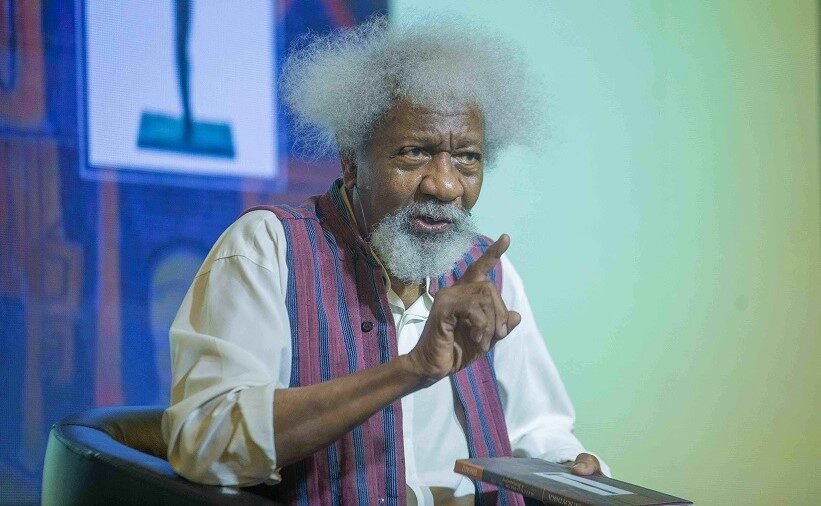NOBEL laureate, Professor Wole Soyinka, has revealed that the United States government has revoked his visa, effectively preventing him from entering the country until further notice.
News Point Nigeria reports that the literary icon disclosed this on Tuesday during a media parley at Kongi’s Harvest Gallery, Freedom Park, Lagos Island, where he expressed surprise and confusion over the development.
Soyinka told journalists that he felt compelled to address the issue publicly because he had several upcoming engagements in the United States, and attendees needed to be aware of his inability to travel.
“It is necessary for me to hold this conference so that people in the United States who are expecting me for this event or that event do not waste their time,” he said. “I have no visa; I am banned, obviously, from the United States. And if you want to see me, you know where to find me.”
According to him, the reason for the revocation remains unclear. He insisted that he was unaware of any wrongdoing, legal violations, or misconduct that could justify the decision.
“I’m still looking into my past history… I don’t have any past criminal record or even a felony or misdemeanour to qualify for the revocation,” he noted. “Have I ever misbehaved toward the United States of America? Do I have a history? Have I been convicted? Have I gone against the law anywhere?”
Soyinka revealed that he was officially notified through a letter dated October 23, 2025, issued by the Non-Immigrant Visa (NIV) Section of the US Consulate General in Lagos. The letter, shown to journalists, stated that his visa had been revoked under relevant US Department of State regulations.
The development comes at a time when the United States has intensified immigration controls amid rising domestic political debates over border security and global migration.
The affected travel document is a B1/B2 visa, a common temporary entry permit for business and tourism.
The saga traces back to earlier reports from September 10, 2025, when Soyinka told PM News that he would not honour a re-interview invitation issued by the US Consulate.
The invitation, sent to several Nigerian B1/B2 visa holders, requested that they appear for a review appointment, a process many travelers described as unusual.
At the time, Soyinka suggested he initially suspected that the letter was fraudulent, potentially generated by scammers impersonating embassy officials.
“I thought it was advance-fee fraud because I had never received that kind of letter from that or any other embassy,” he said. “I even thought that maybe AI had been generating generic letters. It was very strange.”
After confirming the authenticity, Soyinka said he reflected on his long-standing cordial relationship with US diplomatic officials, including ambassadors, consuls-general, and cultural attachés, making the revocation even more perplexing.
He reiterated that, although he is personally affected, the matter raises broader concerns about diplomatic processes and transparency.
The US Consulate has yet to publicly comment on the reason for the visa cancellation.







